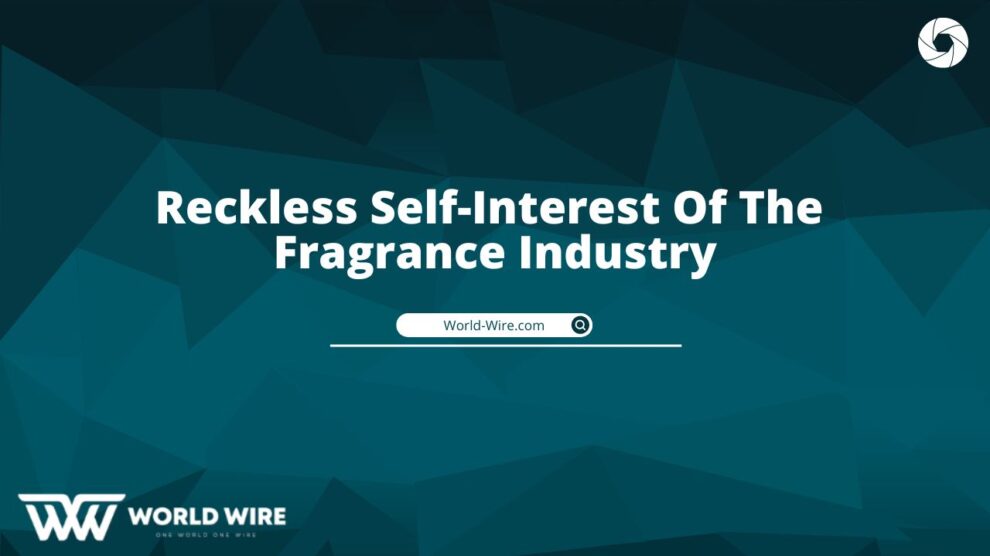In today’s statement, the Cancer Prevention Coalition called for people to be protected from fragrance ingredients that may cause cancer, fetal toxicity or hormonal toxicity. Despite this, federal agencies do not regulate these ingredients, leaving the public at risk as a result of the fragrance industry’s “recklessly irresponsible” behavior, says CPC Chairman Samuel Epstein.
Lautenberg’s Safe Chemicals Act of 2010 will ensure the public’s safety by requiring manufacturers to disclose the presence of “chemicals of concern” in their products, Dr. Epstein explains.
Dr. Epstein says the bill is necessary to inform the public of these products’ dangers, especially since the FDA has not done so since passage of the 1938 Federal Food, Drug, and Cosmetic Act.”
It is estimated that perfumes and fragrances account for about 50 percent of all prestige beauty dollars spent in the United States now. These products include products for hair, face, and eyes as well. In addition to being extensively used in household cleaning products, fragrances are also used extensively in cosmetics and personal care products.
Unlike household cleaning products, cosmetics and personal care products expose users primarily to toxic ingredients through their skin. In contrast, household cleaning products expose users primarily through inhalation.
According to 1938 Federal Food Drug and Cosmetic Act, the FDA is directly responsible for regulating toxic ingredients in cosmetics and personal care products, but it hasn’t done so yet. This toxic ingredient is also still not regulated by the U.S. Environmental Protection Agency, seven decades after it was created.
“In the absence of federal regulations,” Dr. Epstein says, its International Fragrance Association (IFRA) determines the policies and practices of the cosmetics and personal care products industries. More than 100 perfume and fragrance manufacturers are members of this international trade organization, which spans 15 regions including the United States, Europe, South America, Australia, and the Far East.”
Through the development of a Code of Practice and safety guidelines, IFRA’s primary objective is to safeguard industry self-regulatory practices and policies, says Dr. Epstein. It is important that perfume and fragrance ingredients remain “trade secrets” and that international legislative labeling and safety initiatives are avoided.
Over 1,300 fragrance ingredients have been tested by the International Research Institute for Fragrance Materials of the over 5,000 used in the fragrance industry. In 1966, IFRA founded this institute to conduct fragrance ingredient research and testing as a “non-profit” organization.
“But these tests are minimal and limited to short-term toxicity tests in rodents.”
Evaluation of ingredient safety is then made by a board of toxicologists, pharmacologists, and dermatologists, identified by the institute as “independent” without disclosure of their qualifications, let alone conflicts of interest.
Their findings are presented to IFRA’s Scientific Advisory Board, and then published in its trade journal, Food and Chemical Toxicology. According to Dr. Epstein, the FDA doesn’t require manufacturers to disclose their ingredients on product labels or in any other way because fragrances are classified as “trade secrets,” as the information reported in this journal is the basis for IFRA’s own “safety guidelines.”
A variety of allergens are included in these ingredients, as well as synthetic musks, specifically tonalide and galaxolide, which mimic natural scents from musk deer and ox,” according to Dr. Epstein. As well as bioaccumulating in the body and having toxic hormonal effects, they have also been identified in breast milk.
This listing has been periodically updated since 1973, when IFRA created its Code of Practice on prohibited ingredients to prevent damage.
In May 1999, the Environmental Health Network of California hired two testing laboratories to identify the ingredients in Calvin Klein’s Eternity perfume in response to repeated complaints of respiratory and neurological effects.
Cancer Prevention Coalition’s analysis of these results, as outlined in Epstein’s Toxic Beauty, reveal the following:
26 ingredients whose “Toxicological properties have not been investigated,” or “toxicology properties have not been thoroughly investigated.”
25 ingredients that are “Irritants.”
5 ingredients that are “Skin sensitizers,” or allergens.
3 ingredients that show “Fetal, hormonal, and reproductive toxicity.”
2 ingredients that “May cause cancer.”
IFRA agreed to make information about allergenic ingredients in perfumes like Eternity available to dermatologists only on request. IFRA president Matthias Vey failed to respond to repeated warnings from the Cancer Prevention Coalition from August to October 2003, denying the public its right to know about “Fragrance On-Call List.” “This action violates the rights of the public,” he warns. “All fragrance products should be labeled to indicate that they do not contain known carcinogens, genes damaging, hormonal, or otherwise toxic ingredients in addition to the absence of known skin and respiratory allergens. Women’s Voices of the Earth reported in June 2010 that IFRA initiated a compliance program in 2007 in response to criticism of unresponsiveness.
He asserts that IFRA restricts fragrances because of a number of factors, including sensitization, photosensitization, phototoxicity, allergenicity, neurotoxicity, carcinogenicity, undefined biological effects, and inadequate data. This resulted in the test being conducted on only 50 fragranced products available on the global market in order to detect prohibited ingredients, says Epstein.
The Research Institute for Fragrance Materials’ pre-approval process for ingredient safety is the only pre-approval process, Epstein emphasizes.

Subscribe to Email Updates :







Add Comment